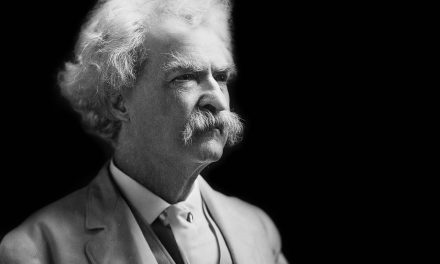Image by Gerd Altmann from Pixabay
Leaders are made, not born.
If you aspire to advance your career, chances are you know the importance of becoming a stellar manager and ultimately a leader.
So, the questions to ask yourself: How much have you invested in your career? How’s it going?
You will become a leader — if you undergo the lifetime transforming process of learning, observing and teaching.
To become a leader, you need to develop skill-sets. But to know how to go to the leadership level, you first have to assess where you are.
So, start by evaluating your readiness for leadership – your strengths and weaknesses – and learn what skills you need.
In essence, leadership is a set of skills. You will acquire skills by training, developing perceptions, practicing and getting experience.
You will fast-track the process if you get a mentor.
With a Mentor You Won’t be Alone in Making Career Decisions
It’s a misnomer to think managers are automatically qualified to be characterized as leaders. That’s often not true. There are key differences.
Here are the necessary qualities and values needed to become a leader:
Focusing
Not to be gauche, but managers typically are focused on what’s at the end of their noses. Using a checklist, they only see a task that needs to completed.
For Career Success, How to Train Your Mind to Focus
Leaders see the big picture. They have an overall purpose. So, they focus on what’s needed to help the welfare of the organization.
Achieving goals
Managers will set their eyes on accomplishing a task. With a set procedures or checklist, they go tediously from point A to B.
To Realize Your Business Vision, 8 Best Practices for Setting Goals
Leaders have the ability to focus on accomplishing missions. Along the way, they encourage their teams with the inter-related tactics of encouragement, inspiration and motivation.
Taking action
Managers tend to supervise the activities of employees by telling them what to do. That’s fine, but it’s not enough.
How Leaders Inspire Employees to Follow Vision for Growth
True, leaders will explain to employees what to do. Moreover, they instinctively coach their team members with encouragement. They stay focused on continuous individual employee’s improvement.
Managing risk
Managers will do their best to lower risks by setting controls. Yes, they understand time is money. So, they take steps to minimize the waste of time and money.
Strategies and Decisions for Best Practices in Risk Management
On the other hand, leaders consider returns on investment. They analyze likely payoffs for projects and initiatives. They are willing to take risks for achievement of organizational objectives.
Innovating
Managers are leery of making mistakes. So, they only follow established procedures to eliminate risks.
Is Your Business Model Set for Innovation? How to Find Out
Leaders want to manage risk but they constantly look for new ideas that will help them accomplish their objectives. They want to consistently grow. They excitedly read constantly to learn new concepts and techniques.
Inspiring employees
Managers are merely focused on controlling behaviors so there are no surprises.
Inspirational Poem Has Lessons for Leadership and Business
Leaders have a different mindset and know the importance of inspiring their workers. Leaders want new ideas for innovation and they encourage employees to grow and in order to perform at their highest potential.
From the Coach’s Corner, here are related tips for leadership:
How Leaders Inspire Employees to Follow Vision for Growth – When a company’s vision is not implemented, the organization suffers dire consequences. Leaders also know the situation is preventable.
13 Precepts for Leadership to Disrupt Your Marketplace – Leaders don’t focus on driving their employees to work harder. Leaders strive to make their vision a reality by seeing to it that employees are more efficient and are unified in supporting business objectives. Here’s how.
Communication Tips to Lead Your 5 Generations of Workers – It’s one thing to create your company’s core values and mission. But it’s another to effectively communicate them and to embed them in your culture, especially across five generations of employees.
For High Performance Create an Emotionally Intelligent Culture – The benefits of an emotionally-intelligent culture are huge. Such organizations have strong sales, great customer loyalty and high employee morale — all because their employees have emotional intelligence. Here’s how.
A Reputation for Leadership Involves More than Self-Promotion – Your goal for leadership should not merely to become popular. Your top goal should be to get respect. Respect is the ultimate benefit from being a good listener. Here’s how.
“Effective leadership is putting first things first. Effective management is discipline, carrying it out.”
-Stephen Covey
__________






